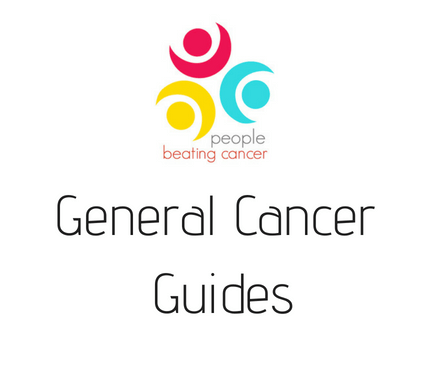“Most women with ovarian cancer receive inadequate care and miss out on treatments that could add a year or more to their lives, a new study has found…”
The article linked and excerpted below indicates that many women newly diagnosed with ovarian cancer don’t get the best therapy possible because they work with oncologists who don’t have much experience with ovarian cancer.
When I was diagnosed with my cancer in 1994, I went to the hospital where I was born…in 1959. I went to University Hospitals here in Cleveland because I was comfortable there not because they had experience in blood cancers.

A cancer diagnosis is an emotionally wrenching experience. Newly diagnosed cancer patients have a difficult time thinking through the who, what, where, when and why of your cancer type and stage.
Consider both conventional and non-conventional therapies. Understand the risks and rewards that come with chemotherapy and radiation.
Treat your cancer AND your health at the same time.
I am both a cancer survivor and cancer coach.
As the saying goes, knowledge is power. If ever there was good reason for cancer coaching it is a diagnosis of ovarian cancer. You owe it to yourself to learn about conventional FDA approved therapies of course, but also you should learn about both integrative and evidence-based, non-conventional therapies as well.
Have you been diagnosed with ovarian cancer? What symptoms are you experiencing? Please scroll down the page, post a question or comment and I will reply to you ASAP.
Thank you,
David Emerson
- Cancer Survivor
- Cancer Coach
- Director PeopleBeatingCancer
Recommended Reading:
“Most women with ovarian cancer receive inadequate care and miss out on treatments that could add a year or more to their lives, a new study has found…
Cancer specialists around the country say the main reason for the poor care is that most women are treated by doctors and hospitals that see few cases of the disease and lack expertise in the complex surgery and chemotherapy that can prolong life...
“If we could just make sure that women get to the people who are trained to take care of them, the impact would be much greater than that of any new chemotherapy drug or biological agent,” The study found that only a little more than a third of patients received the best possible care, confirming a troubling pattern that other studies have also documented…
Surgeons who lack expertise in ovarian cancer should refer women to specialists if the women are suspected to have the disease, but often do not, Dr. Goff said…
Surgeons who operated on 10 or more women a year for ovarian cancer, and hospitals that treated 20 or more a year, were more likely to stick to the guidelines, the study found. And their patients lived longer. Among women with advanced disease — the stage at which ovarian cancer is usually first found — 35 percent survived at least five years if their care met the guidelines, compared with 25 percent of those whose care fell short…
But most of the women in the study, more than 80 percent, were treated by what the researchers called “low-volume” providers — surgeons with 10 or fewer cases a year, and hospitals with 20 or fewer.
Dr. Bristow said women should ask surgeons how often they operate on women with ovarian cancer and how often they achieve complete debulking…
It compared standard intravenous chemotherapy with a regimen that pumped the drugs directly into the abdomen. The test regimen was highly toxic, and not all patients could tolerate it. But median survival on it was 65.6 months, compared with 49.7 months on the standard treatment — a survival difference of 15.9 months…




